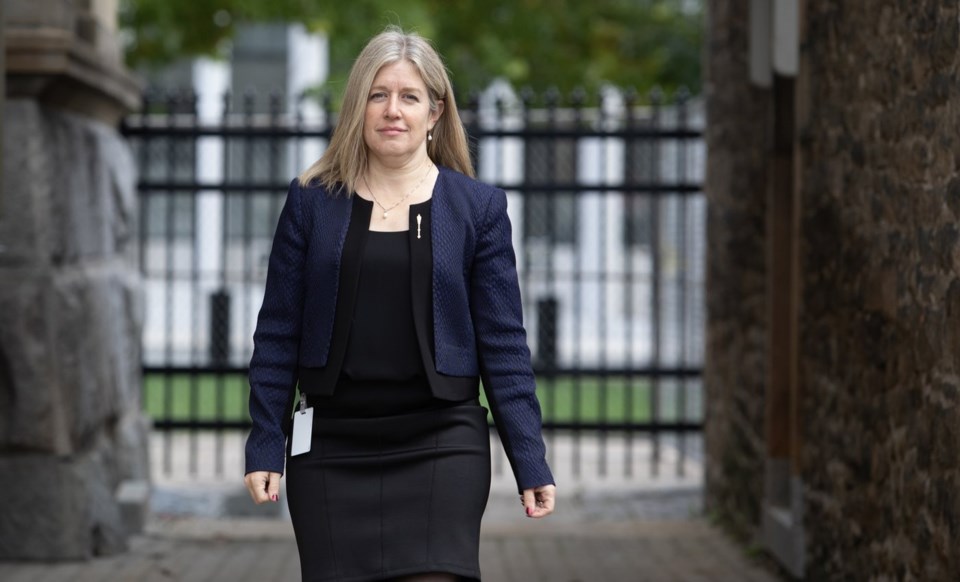UPPER MIRAMICHI — New Brunswick's Liberal government says it has expanded its subsidized breakfast program to all the province's schools.
The number of schools offering free breakfasts will expand to 296 from 136, Premier Susan Holt told reporters Wednesday, saying that her party kept its promise from last year's election campaign.
Holt said the breakfast program will include local food, including apples, cheese and bread.
"We're going to have as many New Brunswick products as possible, and then we're going to fill in with Canadian — with gluten free options. We're respectful of different diets and allergies, but the more New Brunswick content in agriculture, the fresher, the better," she said.
The province said the expanded program launched with the start to the school year. The rollout is staggered, but all schools should start receiving the breakfasts by the end of the month.
New Brunswick is funding the expanded program with an envelope of more than $11 million from the federal government. Ottawa has set aside $1 billion over five years to expand access to provincial school food programs.
During the election campaign, Holt also promised pay-what-you-can lunches starting September 2025. But the premier now says not all schools have the infrastructure to support hot lunches. The government has started to help schools buy things such as fridges, stoves and counters to roll out the program in 2026.
"We're getting that lunch program supported and set up this year and ready to roll for next year," Holt said.
The premier said the government is learning from Prince Edward Island and Nova Scotia on how to implement a lunch program. Nova Scotia Education Minister Brendan Maguire said the program, which is pay what you can, is offered to more than 104,000 students in 334 schools.
This report by The Canadian Press was first published Sept. 3, 2025.
The Canadian Press



